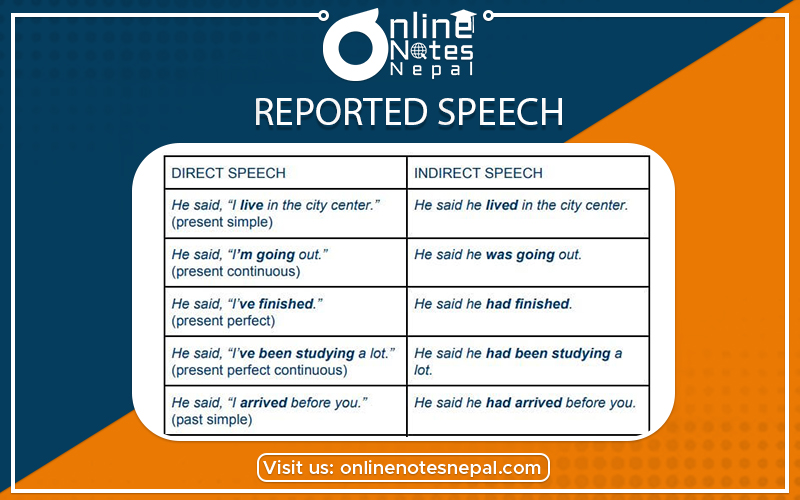Published by: Zaya
Published date: 06 Jul 2021

Reported speech is when we tell someone what another person said. To do this, we can use direct speech or indirect speech.
Reported speech is of two types i.e direct speech and indirect speech. If we quote the actual words of the speaker, it is called direct speech and If we report what somebody says without giving their exact words, it is called indirect speech.
Indirect speech is a means of expressing the content of statements, questions, or other utterances, without quoting them explicitly as is done in Direct speech.
Direct or quoted speech is spoken or written text that reports speech or thought in its original form phrased by the original speaker; in a narrative, it is usually enclosed in quotation marks, but could be enclosed in guillemet.
Places:
|
here |
there |
|
this |
that |
|
these |
those |
|
come |
go |
Time:
|
now |
then |
|
today |
that day |
|
tonight |
that night |
|
this week |
that week |
|
tomorrow |
the following day/the next week |
|
yesterday |
the previous day |